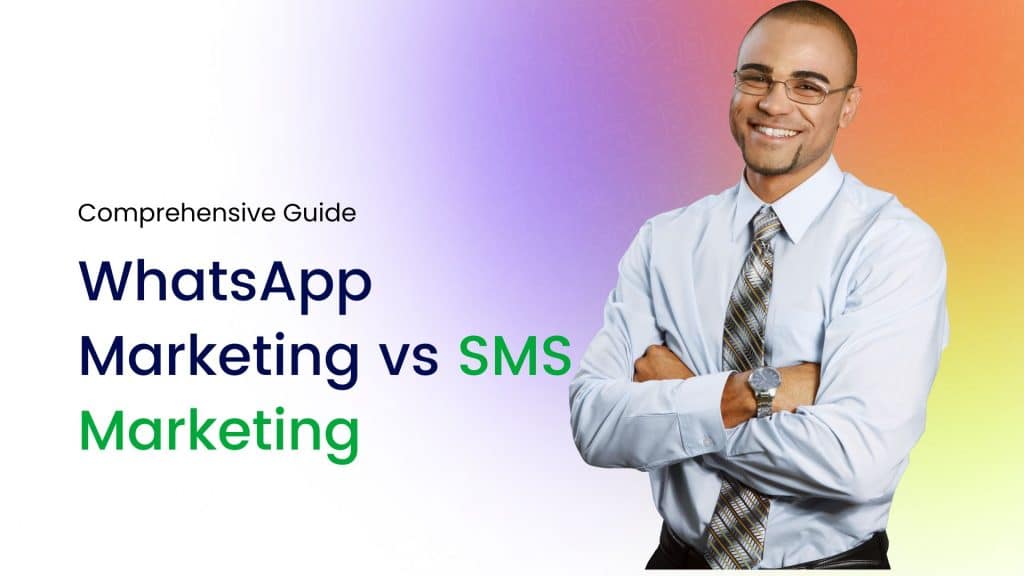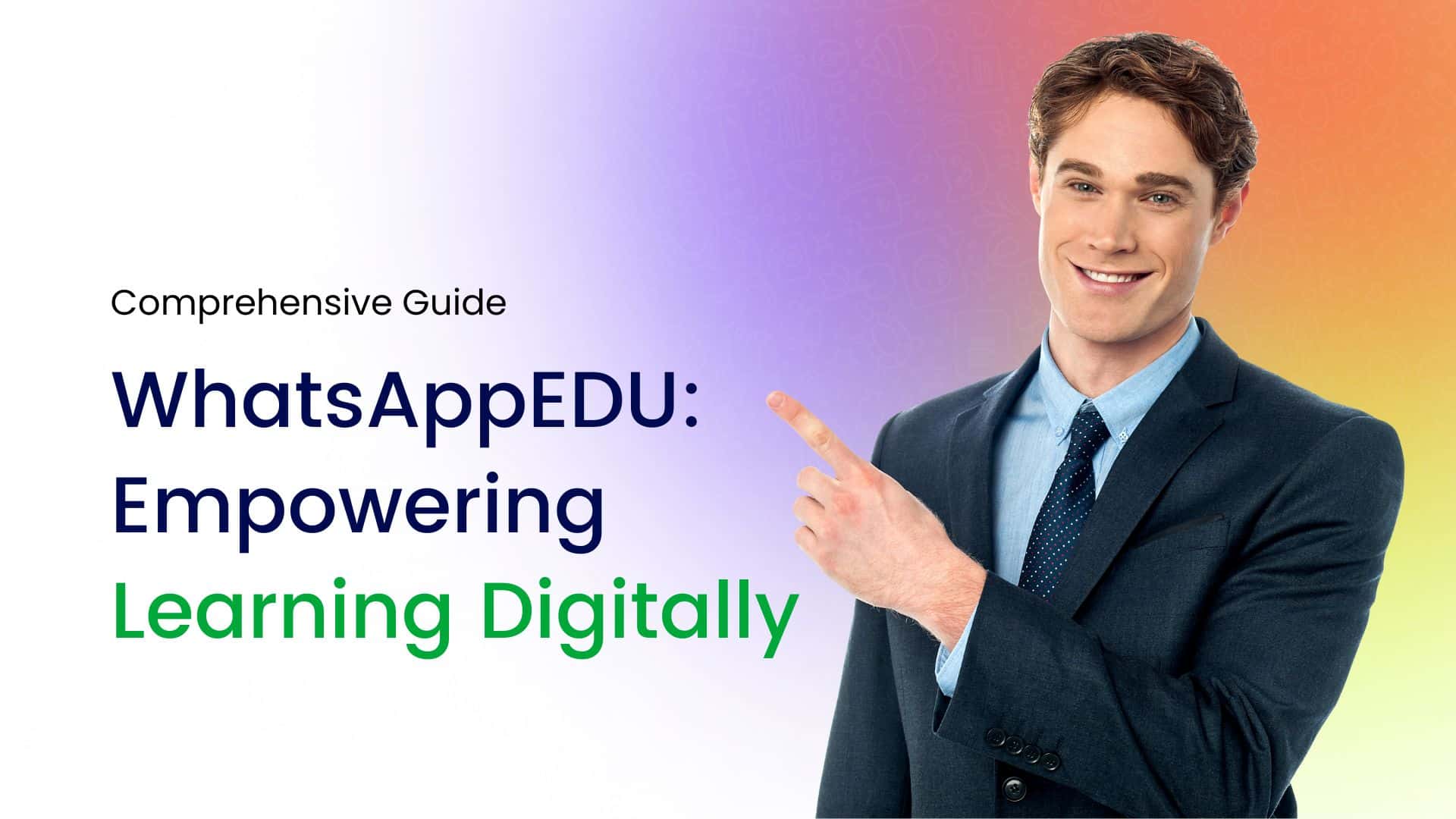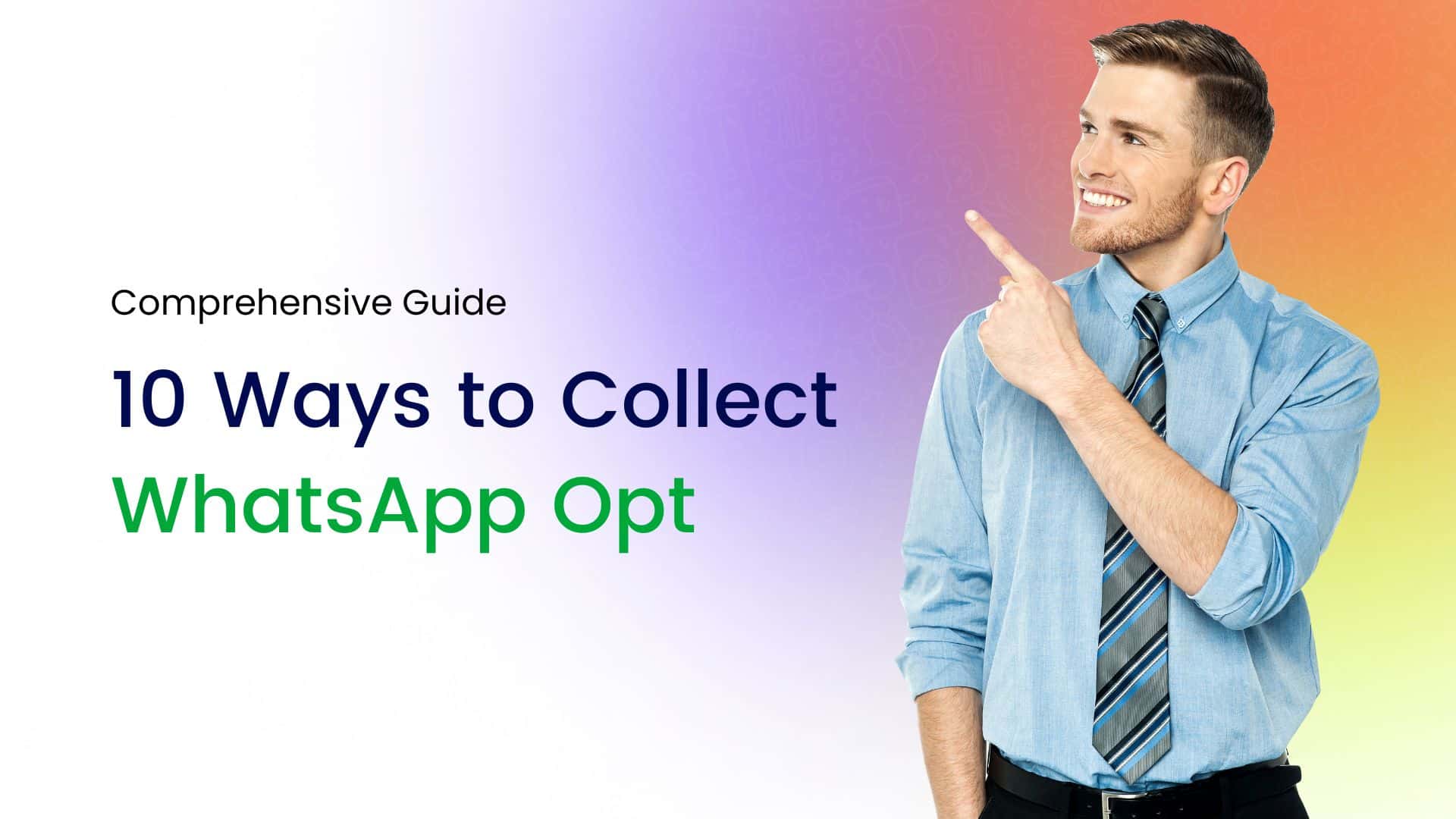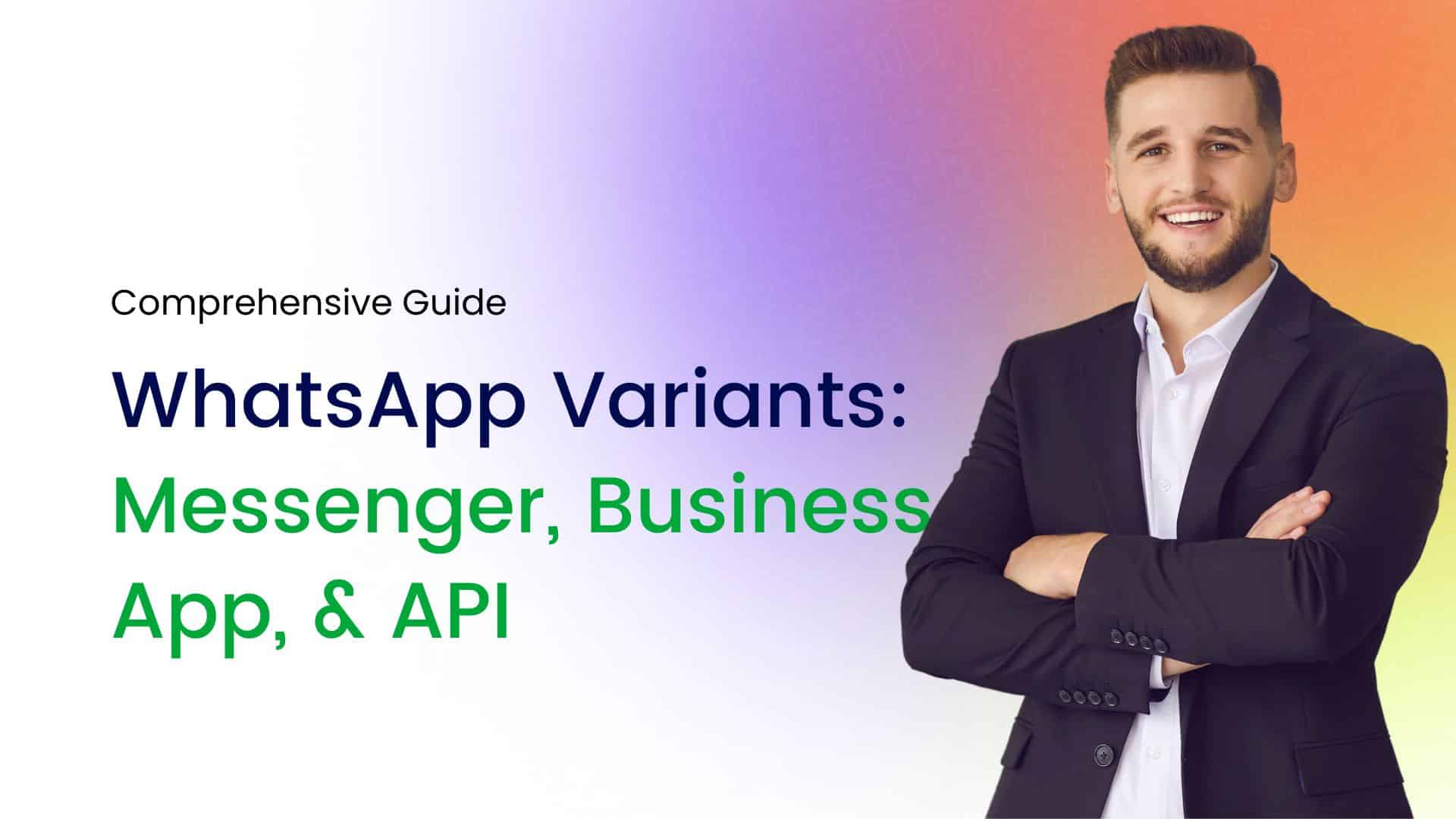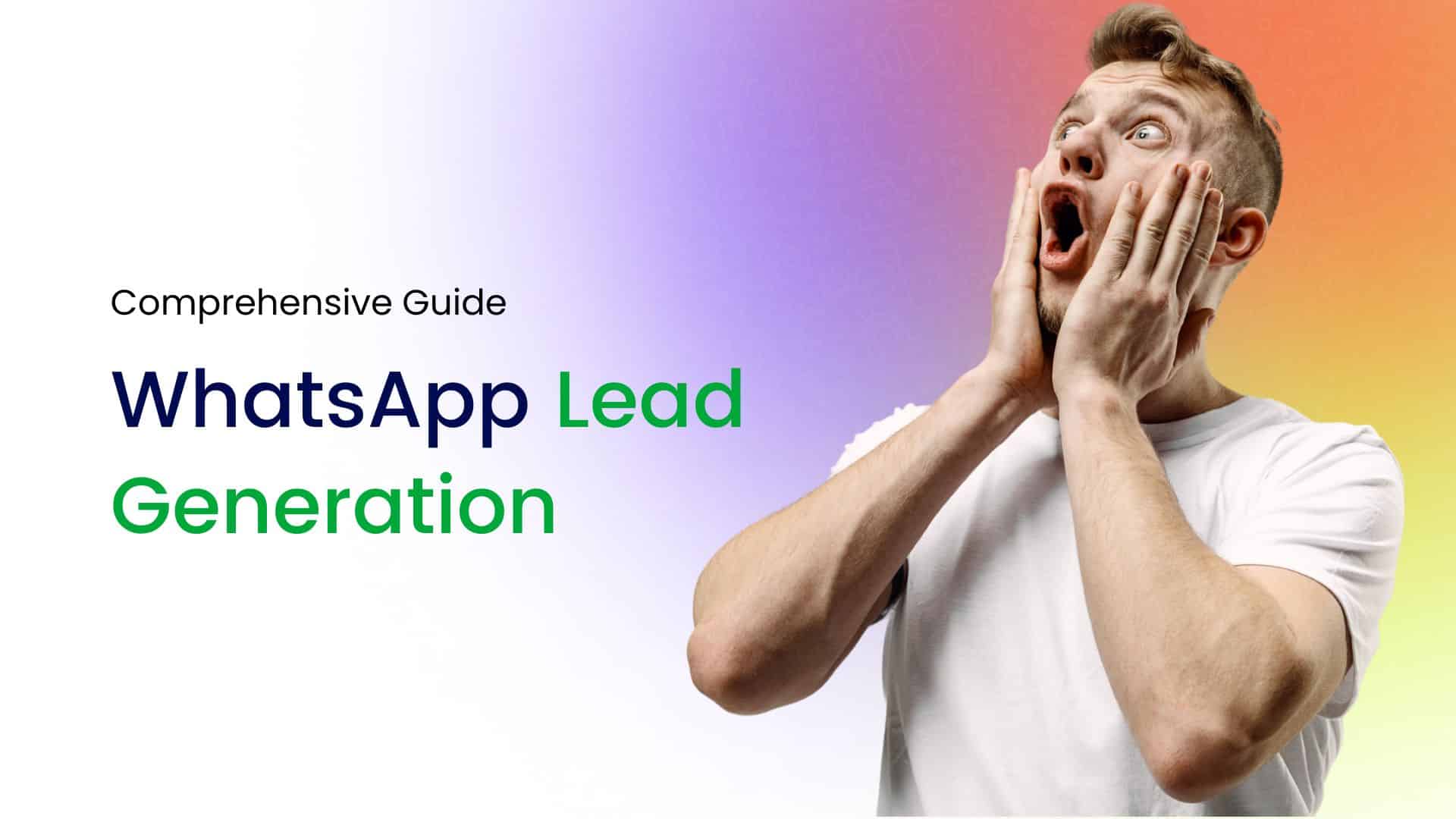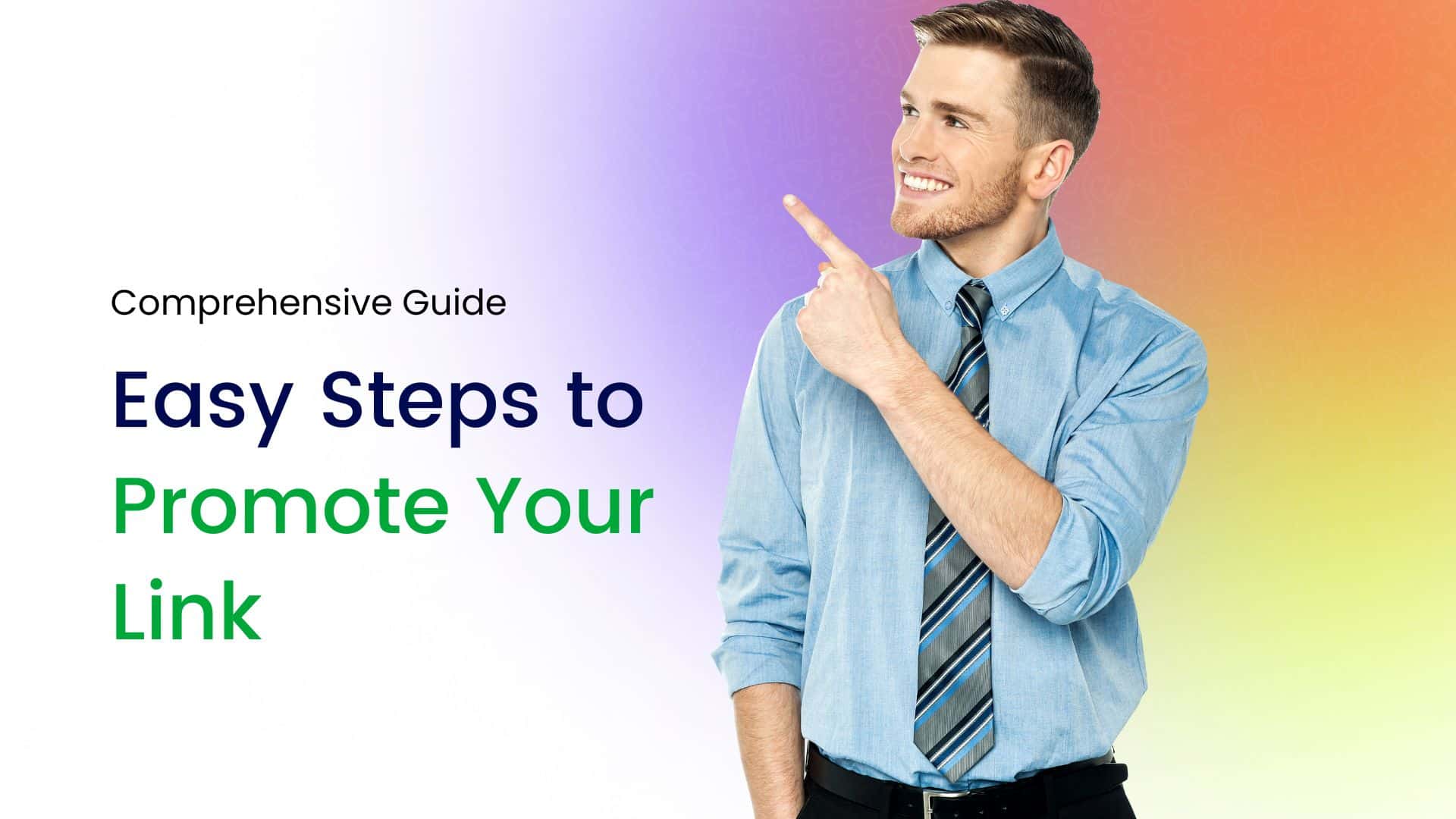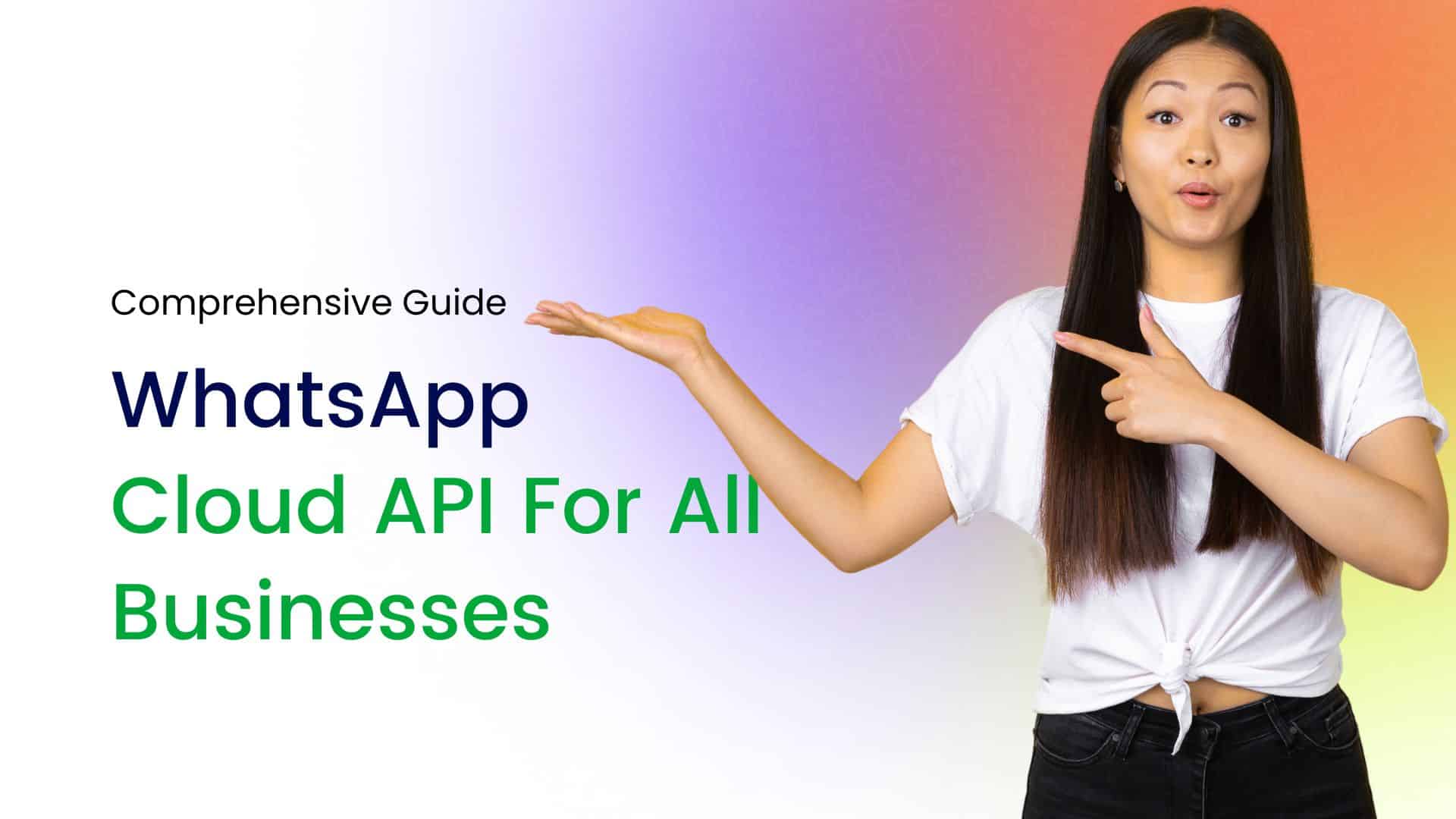In the world of digital marketing, where every message counts, the choice between WhatsApp and SMS (Short Message Service) can significantly impact the success of your campaigns. Both WhatsApp and SMS are powerful tools for reaching customers directly on their mobile devices, but they have distinct features and advantages. Understanding the differences between them is crucial for crafting effective marketing strategies.
Let’s delve into a comprehensive comparison of WhatsApp Marketing and SMS Marketing
Reach and Accessibility:
WhatsApp: With over 2 billion users worldwide, WhatsApp boasts an extensive reach, making it an attractive platform for marketing. It allows businesses to send text, images, videos, and even documents directly to their customers’ smartphones.
SMS: SMS, on the other hand, has been around longer and is universally accessible across all mobile phones. Even without an internet connection, users can receive SMS messages, making it a reliable choice for reaching a broader audience.
Engagement and Interaction:
WhatsApp: One of WhatsApp’s strengths lies in its interactive features, such as voice messages, group chats, and multimedia sharing. Businesses can engage with customers in real-time, fostering personalized communication and building stronger relationships.
SMS: SMS is more straightforward, primarily limited to text messages. While it lacks the multimedia capabilities of WhatsApp, SMS excels in delivering concise and direct messages that grab users’ attention instantly.
Cost-effectiveness:
WhatsApp: While WhatsApp initially offered free messaging, it introduced WhatsApp Business API for enterprises, which comes with a cost based on the number of messages sent. However, the cost may vary depending on the region and volume of messages.
SMS: SMS marketing typically involves a per-message cost, but bulk messaging services often offer competitive rates, especially for large volumes. Additionally, since SMS doesn’t require internet connectivity, there are no additional data charges for recipients.
Opt-in and Privacy:
WhatsApp: Users must opt-in to receive messages from businesses on WhatsApp, ensuring a higher level of consent and reducing the risk of spam. Moreover, WhatsApp encrypts messages end-to-end, prioritizing user privacy and security.
SMS: While SMS marketing also requires opt-in consent in many jurisdictions, there’s a greater risk of messages being perceived as spam due to the prevalence of unsolicited texts. However, SMS marketing regulations vary by country, and compliance is essential to avoid legal repercussions.
Targeting and Analytics:
WhatsApp: WhatsApp Business API provides businesses with advanced targeting options and analytics, allowing them to segment their audience based on various factors and track the performance of their campaigns effectively.
SMS: While SMS lacks the advanced targeting capabilities of WhatsApp, it still provides basic analytics such as delivery rates and response rates. Integration with CRM systems and other marketing tools can enhance the effectiveness of SMS campaigns.
WhatsApp Marketing: Messaging with Impact
In the realm of digital marketing, WhatsApp has emerged as a formidable platform for businesses to engage with their audience directly. With its user base surpassing 2 billion worldwide, WhatsApp offers unparalleled opportunities for brands to connect with customers in real-time. Leveraging WhatsApp for marketing purposes requires a strategic approach that emphasizes messaging with impact. Let’s explore how businesses can harness the power of WhatsApp to deliver compelling messages that resonate with their audience.
Understanding the Audience
Before crafting any marketing message, it’s crucial to understand the target audience on WhatsApp. Unlike traditional advertising channels, WhatsApp provides a more intimate and personal communication environment. Businesses should take the time to understand the preferences, behaviors, and interests of their WhatsApp contacts to tailor messages that resonate with them.
Personalization and Segmentation
One of the key advantages of WhatsApp marketing is its ability to deliver personalized messages directly to individuals or segmented groups. By leveraging data such as user demographics, past interactions, and purchase history, businesses can tailor messages that feel relevant and valuable to recipients. Personalized messages are more likely to capture attention and drive engagement compared to generic broadcasts.
Interactive Communication
WhatsApp’s interactive features, such as voice messages, multimedia sharing, and group chats, offer opportunities for businesses to engage with their audience in meaningful ways. Instead of simply broadcasting promotional content, businesses can initiate two-way conversations, solicit feedback, and provide personalized assistance. Interactive communication fosters a sense of connection and trust, ultimately leading to stronger customer relationships.
Timely and Relevant Content
In the fast-paced world of messaging apps, timing is everything. Businesses should strive to deliver content that is timely and relevant to their audience’s interests and needs. Whether it’s announcing a new product launch, sharing exclusive offers, or providing helpful tips, the key is to deliver value with every message. By staying relevant and engaging, businesses can maintain the attention and interest of their WhatsApp contacts.
Call-to-Action and Conversion Optimization
Every marketing message should have a clear call-to-action (CTA) that prompts recipients to take the desired action. Whether it’s visiting a website, making a purchase, or participating in a survey, the CTA should be concise, compelling, and easy to follow. Businesses can optimize conversion rates by providing incentives, creating urgency, and removing friction from the conversion process. Additionally, tracking and analyzing the performance of CTAs can provide valuable insights for refining future messaging strategies.
Compliance and Privacy
As with any marketing channel, businesses must adhere to relevant regulations and best practices when using WhatsApp for marketing purposes. This includes obtaining consent from recipients, respecting their privacy preferences, and complying with data protection laws. By prioritizing compliance and transparency, businesses can build trust with their audience and mitigate the risk of regulatory issues.
Measuring Success and Iterating
To ensure the effectiveness of WhatsApp marketing efforts, businesses should regularly measure and analyze key performance indicators (KPIs). This may include metrics such as message open rates, click-through rates, conversion rates, and customer satisfaction scores. By tracking KPIs and gathering feedback from recipients, businesses can identify areas for improvement and iterate on their messaging strategies accordingly.
SMS Marketing: The Classic Approach in the Digital Age
In the ever-evolving landscape of digital marketing, where trends come and go, SMS marketing remains a timeless and effective strategy for reaching customers directly on their mobile devices. Despite the rise of newer communication channels, SMS (Short Message Service) continues to hold its ground as a reliable and impactful method for businesses to connect with their audience. Let’s delve into why SMS marketing persists as a classic approach in the digital age and how businesses can leverage its power to drive engagement and conversions.
Instantaneous Reach
One of the most significant advantages of SMS marketing is its ability to deliver messages instantly to recipients’ mobile phones. Unlike email or social media, which may be overlooked or buried in a crowded inbox or feed, SMS messages are typically read within minutes of being received. This real-time engagement ensures that businesses can deliver timely and relevant messages that capture the attention of their audience.
Universal Accessibility
SMS has a broad reach and is accessible to nearly all mobile phone users, regardless of their device or internet connectivity. Unlike messaging apps that require a smartphone and an internet connection, SMS can reach users with basic feature phones, making it an inclusive and ubiquitous communication channel. This universality ensures that businesses can connect with a wide audience, including those in areas with limited internet access.
High Open and Response Rates
Compared to other marketing channels, SMS boasts impressive open and response rates. Studies have shown that the majority of SMS messages are opened within minutes of being received, with response rates far exceeding those of email or social media. This high level of engagement makes SMS an ideal channel for delivering time-sensitive promotions, event reminders, appointment notifications, and other critical messages.
Simplicity and Directness
SMS messages are concise and to the point, typically limited to 160 characters per message. This simplicity ensures that businesses must distill their message down to its essence, making every word count. The directness of SMS cuts through the clutter and delivers information in a clear and straightforward manner, making it easy for recipients to understand and act upon.
Cost-Effectiveness
SMS marketing is a cost-effective strategy, especially when compared to other forms of advertising such as print, radio, or television. With bulk messaging services, businesses can send thousands of SMS messages for a fraction of the cost of traditional advertising methods. This affordability makes SMS accessible to businesses of all sizes, from small startups to multinational corporations.
Compliance and Trust
To maintain the trust and confidence of recipients, businesses must adhere to regulations and best practices governing SMS marketing. This includes obtaining explicit consent from recipients before sending marketing messages, providing clear opt-out instructions, and respecting privacy preferences. By prioritizing compliance and transparency, businesses can build trust with their audience and foster long-term relationships.
Integration and Automation
SMS marketing can be seamlessly integrated with other marketing channels and automated through the use of marketing automation platforms. By syncing customer data across systems, businesses can personalize SMS messages based on customer preferences, behavior, and purchase history. Automation streamlines the process of sending targeted campaigns, saving time and resources while maximizing effectiveness.
Direct Comparison Between WhatsApp and SMS Marketing: Choosing the Best Messaging Powerhouse
In the dynamic landscape of digital marketing, the choice between WhatsApp and SMS (Short Message Service) can significantly impact the success of your campaigns. Both platforms offer direct communication with customers on their mobile devices, but they differ in features, reach, engagement, and cost. Let’s conduct a direct comparison between WhatsApp and SMS marketing to help you choose the best messaging powerhouse for your business.
Reach and Accessibility
- WhatsApp: With over 2 billion users globally, WhatsApp boasts a massive user base, making it an attractive platform for marketing. However, it requires an internet connection, limiting its accessibility in areas with poor connectivity.
- SMS: SMS has universal accessibility, reaching virtually all mobile phone users, regardless of internet connectivity. It’s an ideal choice for businesses targeting audiences in regions with limited internet access.
Engagement and Interaction
- WhatsApp: WhatsApp offers rich multimedia features, group chats, and real-time interaction, fostering personalized communication and stronger relationships with customers.
- SMS: SMS is more straightforward, primarily limited to text messages. While it lacks multimedia capabilities, it excels in delivering concise and direct messages that grab users’ attention instantly.
Cost-effectiveness
- WhatsApp: While WhatsApp initially offered free messaging, businesses using WhatsApp Business API incur costs based on the volume of messages sent. The cost may vary depending on the region and message volume.
- SMS: SMS marketing typically involves a per-message cost, but bulk messaging services offer competitive rates, especially for large volumes. Additionally, since SMS doesn’t require internet connectivity, there are no additional data charges for recipients.
Opt-in and Privacy
- WhatsApp: Users must opt-in to receive messages from businesses on WhatsApp, ensuring a higher level of consent and reducing the risk of spam. WhatsApp also encrypts messages end-to-end, prioritizing user privacy and security.
- SMS: While SMS marketing also requires opt-in consent in many jurisdictions, there’s a greater risk of messages being perceived as spam due to the prevalence of unsolicited texts. Compliance with regulations is essential to maintain user trust and privacy.
Targeting and Analytics
- WhatsApp: WhatsApp Business API provides advanced targeting options and analytics, allowing businesses to segment their audience and track campaign performance effectively.
- SMS: While SMS lacks advanced targeting capabilities, integration with CRM systems and marketing tools can enhance campaign effectiveness. Basic analytics such as delivery rates and response rates are available for measuring SMS campaign performance.
Why Choose WhatsApp Marketing
WhatsApp marketing offers a plethora of benefits for businesses looking to engage with their audience in a more personalized and interactive manner. Here’s why you should consider WhatsApp marketing:
- Large User Base: With over 2 billion monthly active users globally, WhatsApp provides businesses with access to a vast audience, including both individuals and businesses.
- High Engagement: WhatsApp boasts high engagement rates, with messages being opened and read quickly by recipients. Its real-time communication capabilities facilitate instant interaction with customers.
- Multimedia Capabilities: Unlike traditional SMS, WhatsApp allows businesses to send multimedia content such as images, videos, documents, and voice messages, enabling more engaging and visually appealing communication.
- Personalized Communication: WhatsApp enables businesses to deliver personalized messages tailored to individual preferences, behaviors, and demographics, fostering stronger connections with customers.
- Interactive Features: With features like group chats, broadcast lists, and WhatsApp Business API integrations, businesses can engage in two-way conversations, solicit feedback, and provide customer support directly through the platform.
- Opt-in Consent: WhatsApp requires users to opt-in to receive messages from businesses, ensuring a higher level of consent and reducing the likelihood of messages being perceived as spam.
- End-to-End Encryption: WhatsApp prioritizes user privacy and security by encrypting messages end-to-end, providing users with peace of mind knowing that their communications are secure.
Conclusion
In conclusion, both WhatsApp Marketing and SMS Marketing offer unique advantages and can be effective tools for reaching customers on their mobile devices. WhatsApp excels in engagement, interactivity, and privacy, making it ideal for building relationships with customers. On the other hand, SMS stands out for its universal accessibility, cost-effectiveness, and simplicity.
The choice between WhatsApp and SMS ultimately depends on your marketing objectives, target audience, and budget. Many businesses find success by incorporating both channels into their marketing strategies, leveraging the strengths of each to maximize their reach and engagement.
Regardless of the platform chosen, it’s crucial to prioritize user consent, deliver valuable content, and comply with relevant regulations to ensure the success and integrity of your marketing efforts.
WhatsApp marketing presents a unique opportunity for businesses to engage with their audience in a more personal and interactive manner. By focusing on personalized communication, timely content, clear CTAs, and compliance with regulations, businesses can deliver messages that resonate with their audience and drive meaningful results. With the right approach, WhatsApp can become a powerful tool for building brand awareness, fostering customer loyalty, and driving conversions.

